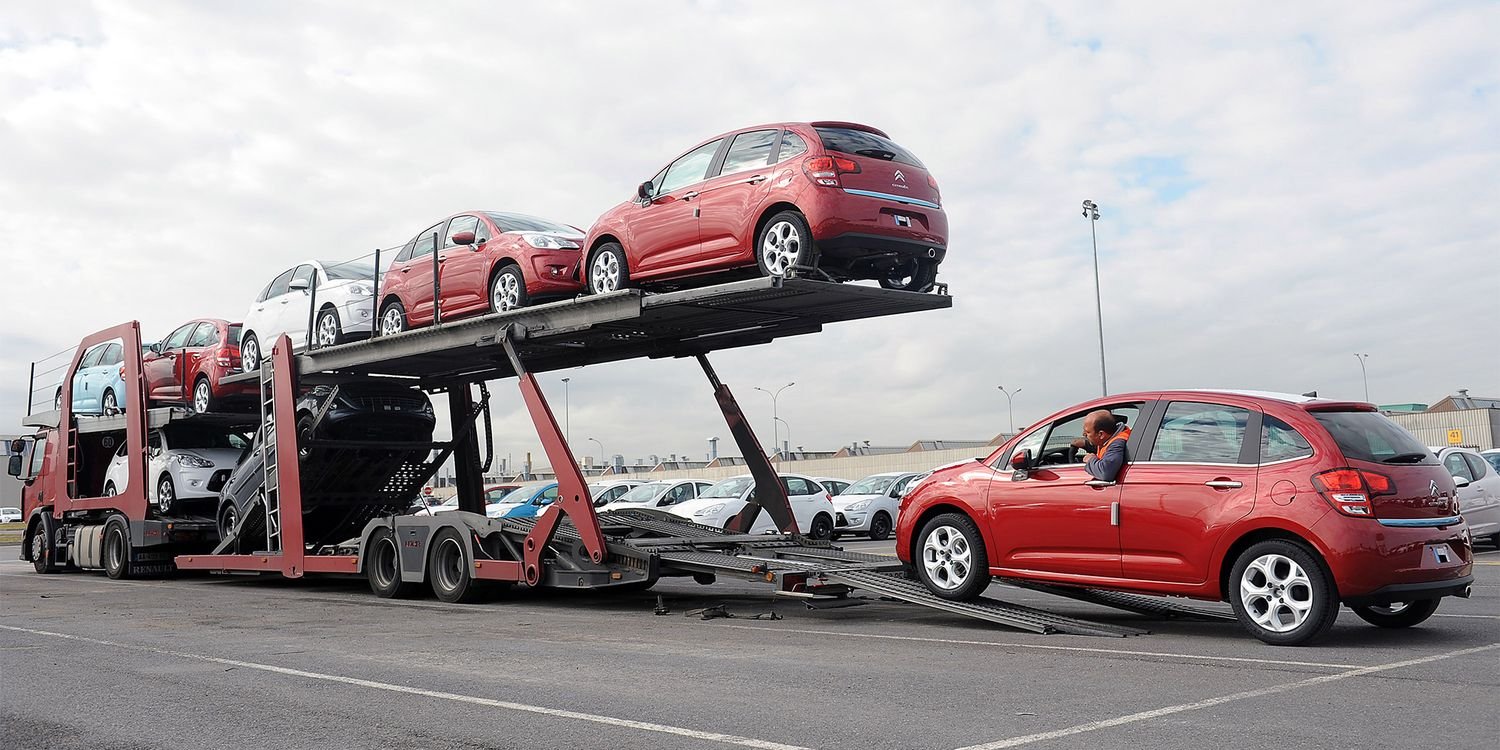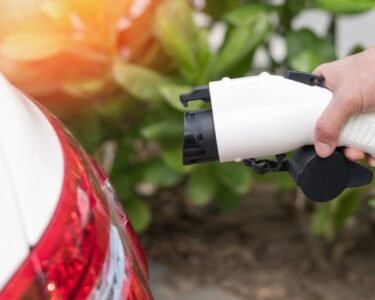Which? has discovered hundreds of car listings online for recalled vehicles with known dangerous safety defects, with online car marketplaces and individual dealers providing no proactive warnings for buyers.
Selling a car with an unresolved recall is potentially a crime, but even when we contacted car dealers directly to ask about whether a car had been recalled, all but one told us, incorrectly, the car we’d asked about had no outstanding recalls.
And when we paid for vehicle check reports provided by popular car-listing sites, one told us the car had the ‘all clear’ while another categorised the recall as ‘minor’ and suggested the recall was limited to cars in the EU.
The findings highlight that despite the ready (and free) availability of recall warnings, buyers are still able to unwittingly purchase potentially dangerous recalled cars with no knowledge of that fact until the car next undergoes its MOT.
The problem: A rare stop-drive recall
Following the recall of the Citroën C3/DS3 in June this year, we started looking for models listed for sale online. Unlike a normal recall, this one is what’s called a ‘stop-drive’ recall, in which Stellantis (the owner of Citroën) has told owners not to drive their cars.
This is due to a potentially faulty airbag that can rupture, causing injury or even death. This problem has been associated with several deaths globally in recent years and affects a number of car brands, not just Citroën.
We’ve since heard from owners who have been left with lengthy waits (in some cases, months long) to get their cars fixed.
Anyone buying a car with a stop-drive recall would be subject to exactly the same advice: do not drive your car. However, as letters regarding the recall have already been sent to the vehicles’ current owners, the first time an owner will find out about it is likely when the car takes its MOT; the presence of outstanding recalls will be noted on the MOT certificate, although that doesn’t mean the car will actually fail the test.
Given many dealers will sell you a car with a full year’s MOT, that’s potentially a full year of being unaware of the problem (unless you ask to see the MOT certificate).
From dealerships to online marketplaces, read our in-depth guide on where to buy a car
What we found: incorrect and unclear information
In a snapshot investigation carried out in the week beginning 30 June, 2025, we looked at 16 Citroën C3 listings on Autotrader.co.uk (of a total of around 330), filtered on models with registration dates of between 2009 and 2016 (the dates of the models affected by the recent stop-drive recall) that had been uploaded to the platform by car dealers (not individuals).
We found:
- The majority were subject to a recall: 12 of the 16 cars had an outstanding recall according to DVSA data.
- A lack of clarity: Of the 12 dealers we messaged asking about the cars’ recall status, only seven responded.
- Inaccurate information: Of those seven, only one gave an accurate response about the car’s recall status.
- No warnings: None of the listings that had cars with recalls had a warning about the car’s stop-drive status on any part of the listing.
- Cars sold: At least one of the cars we checked was marked as sold while still subject to a recall.
We also checked another marketplace, Carwow, and found cars subject to a recall that weren’t being advertised as such. We contacted three dealers advertising on the platform, but none of them replied to our messages requesting recall information.

How the car-listing sites responded
After we contacted it with our findings, Autotrader added warnings to all Citroën C3s listed on its website. It also told us it had contacted all sellers of these cars, advising them to check the cars’ recall status.
Autotrader said: ‘It’s important to us to maintain a trusted and transparent marketplace, so once we were made aware of the serious nature of this specific product recall, we took swift action. We have added information about the recall on our relevant product pages, and within our Security Advice Centre so consumers are aware of the current issue.
‘We have also communicated the information Citroën had shared with its customers to our retailer customers and to consumers who were selling a potentially affected vehicle, so they in turn could take the appropriate action.’
Carwow’s press office had not responded to our emails at the time of publication and no warnings were displayed on any of the cars we checked as of 10 July, 2025.
Best car deals: see the latest cash and finance discounts on new cars
What consumer law says
Selling a car that has an outstanding safety recall is a likely breach of the General Product Safety Regulations 2005 (GPSR). This is based on an interpretation by the DVSA that states that ‘a product with an outstanding safety recall should not be passed to a consumer’. It also states that the law does not distinguish between new and used products; so sellers of used cars are equally responsible as those that sell new cars.
Indeed, earlier in July, a car dealer in Luton was fined £14,000 for not informing customers about safety recalls over several months.
The Chartered Trading Standards Institute (CTSI), the professional body representing Trading Standards professionals, told us that a car with a serious recall or a stop-drive warning shouldn’t be sold in that condition under any circumstances and doing so may constitute an offence under GPSR law.
In addition, a consumer who buys a car with an unresolved and undeclared recall may have recourse under the Consumer Rights Act 2015 (CRA), which includes the right to reject the vehicle within 30 days, or to request a repair, replacement or partial refund.

While the dealers we contacted provided incorrect information when we first contacted them, we didn’t proceed through the buying process, so checks further down the line and prior to sale may have identified the issue, especially as this is a fairly new recall.
Some dealers who replied to our messages stated their cars would come with a clean HPI report (a commonly used vehicle-checking service); presumably, the report was generated before the recall took effect because when we purchased our own HPI checks, the recall was present in the reports.
Indeed, the CTSI advises that it is good practice for dealers to check for recalls both when the car is first put up for sale and just prior to sale, to ensure it isn’t unwittingly selling a car with an open recall.
The CTSI also said that dealers have reported in the past that car companies have prioritised consumers over traders when it comes to booking in recall repairs, meaning they can end up waiting longer with a car that they are unable to sell.
None of this changes the fact that selling a recalled car could be a criminal offence, but it does go some way to explain why this is happening and why, in some cases, dealers may genuinely not yet be aware of the recall.
This is why it’s all the more important that potential buyers have several opportunities to be warned of a safety issue.
Best cars for 2025: see the models that aced our tough lab tests
Paid-for ‘checks’ don’t tell the whole story
Autotrader and Carwow advertise that you can uncover vehicle information, such as details on outstanding finance, theft and changes of number plates for a fee. On Autotrader it’s £4.95 per car, while on Carwow you pay £19.99 for five checks (£3.99 each) or £8.50 for an individual check.
To verify the contents of these reports, we bought one from Autotrader. For this car, we knew the VIN (vehicle identification number) as it had been provided by the dealer, so we had up-to-date information directly from Stellantis’ own recall checker as to whether the car was subject to the most recent stop-drive safety recall.

The report we bought stated ‘All clear: We have not identified any issues with this vehicle’ and did not show any information regarding this car’s stop-drive recall status. While Autotrader doesn’t claim to provide recall data in its reports, it’s not hard to imagine a prospective owner seeing the ‘all clear’ here and assuming there is no further action to take.
We also bought a report from Carwow, which claims its reports show recall information. It did deliver this, to an extent. It placed the recall in the ‘minor’ issues category, and stated the car ‘may have been’ the subject of a recall ‘within the European Union’. Given that the UK is not in the EU, a prospective owner may, again, see this information and disregard it as there is no specific information or action about the UK here.

Ultimately, these paid-for checks are completely unnecessary for getting recall information alone – although they do contain much more beyond that, including information about outstanding finance, numberplate changes and whether they’ve been stolen in the past.
The DVSA MOT history site has a section on recalls, and all you need is the car’s numberplate. The DVSA site will tell you if a car has an outstanding recall in the UK, although it won’t tell you exactly what. If you’re able to get the car’s VIN from a dealer you can, in this case at least, check that directly with the manufacturer’s own recall checking service to get up-to-the-minute information.
Both Carwow and Autotrader make various statements advising buyers check all information with the dealer and the manufacturer. But, given these dealer reports appear comprehensive – and cost money – many would be forgiven for thinking this is all they need to do to get the whole truth about the car they’re about to buy.
How to check any car for outstanding recalls
The government’s MOT checking service lets you find out about a car’s history, including whether it has any unresolved recalls. Here’s how to do it:
- Get the numberplate of the car you’re interested in
- Type it into the box on the MOT checker
- Scroll down to ‘Check for vehicle recalls’ – if the car has a recall, the page will look something like the image below.

If the car does have a recall associated with it, get the car’s unique VIN from the dealer. Many major car manufacturers will have a free recall checking tool online, and this will tell you the nature of the recall and what to do next. If they don’t have an online checker, you should be able to call any of the brand’s main dealers, which will be able to let you know what the outstanding recall is for.
Any recalls will be dealt with free of charge by the manufacturer, although you may be in for a wait depending on what parts are needed. If a car you want to buy is subject to any kind of recall, get confirmation in writing from the dealer that the issue will be resolved before you hand over any cash.
If you’d like to share your experience about this recall or any other car recalls, please email helpwanted@which.co.uk, particularly if you’ve bought a car that had been recalled but were unaware. Please use the subject line ‘Car recall’.
Does recall data sharing need improvement?

Michael Passingham, Which? Senior researcher
In researching this story over the past two weeks, I’ve been both pleasantly surprised but also equally frustrated by the provision of vehicle data in the UK. On the one hand, the DVSA’s checkers on Gov.uk for tax status, MOT history, emissions and recalls are a great example of data in the public domain that empowers buyers to make informed choices using just a vehicle’s numberplate without having to pay a penny.
But serious and timely cases such as the Citroën C3/DS3 recall show improvements are needed. The way in which the DVSA receives recall information from manufacturers varies massively. Some provide data in near enough realtime, while others can end up lagging behind, which means you’re not always looking at the most up-to-date data when checking directly on Gov.uk. My understanding is that Stellantis is in the latter camp, based on my experience of checking dozens of C3s in the past few days. This makes finding up-to-the minute data even more tricky.
You may feel you have no way of knowing exactly what recall your car is subject to
More frustrating is that while the Gov.uk checkers will tell you a recall is outstanding on a given car, it doesn’t say what the specific recall is. Old cars like the Citroën C3 have been subject to a fair few recalls in the past 16 years; some affected only a handful of C3s, while the airbag recall has affected the majority of them. As an inexperienced buyer, you may feel you have no way of knowing exactly what recall your car is subject to, without then having to check with the dealer. And in my experience, even then, the dealer may not know what the issue is.
Interestingly enough, the DVSA said in 2023 it now sends out vehicle recall information at the same time as it reminds you your car is due its MOT, but you’ll obviously only see that if you have signed up for reminders in the first place.
The only way to know for sure would be to have a VIN for the specific car and the knowledge that Stellantis – or whatever company is responsible for the car you’re buying – has its own online recall checker that is updated regularly. Dealers aren’t always willing to provide a VIN remotely, so in many cases, you’ll have to be on-site at the dealership to get the VIN and then awkwardly tap it into your phone to see what the issue is.
And perhaps that’s fine for most recalls, but the airbag issue at play here is serious and has real-world ramifications – where you end up with a car that you can’t drive.
It’s great that Autotrader has responded to the issue here and added warnings to car listings. But as it doesn’t have access to a live feed of data, it’s very much a blanket approach on all C3/DS3 vehicles from the affected years.
This means consumers still have to manually check with dealers or Stellantis. It’s absolutely better than nothing, but it shows improvements in data are sorely needed across the industry.
Drive smarter and cut costs using our expert advice. Get our Cars newsletter – it’s free monthly




